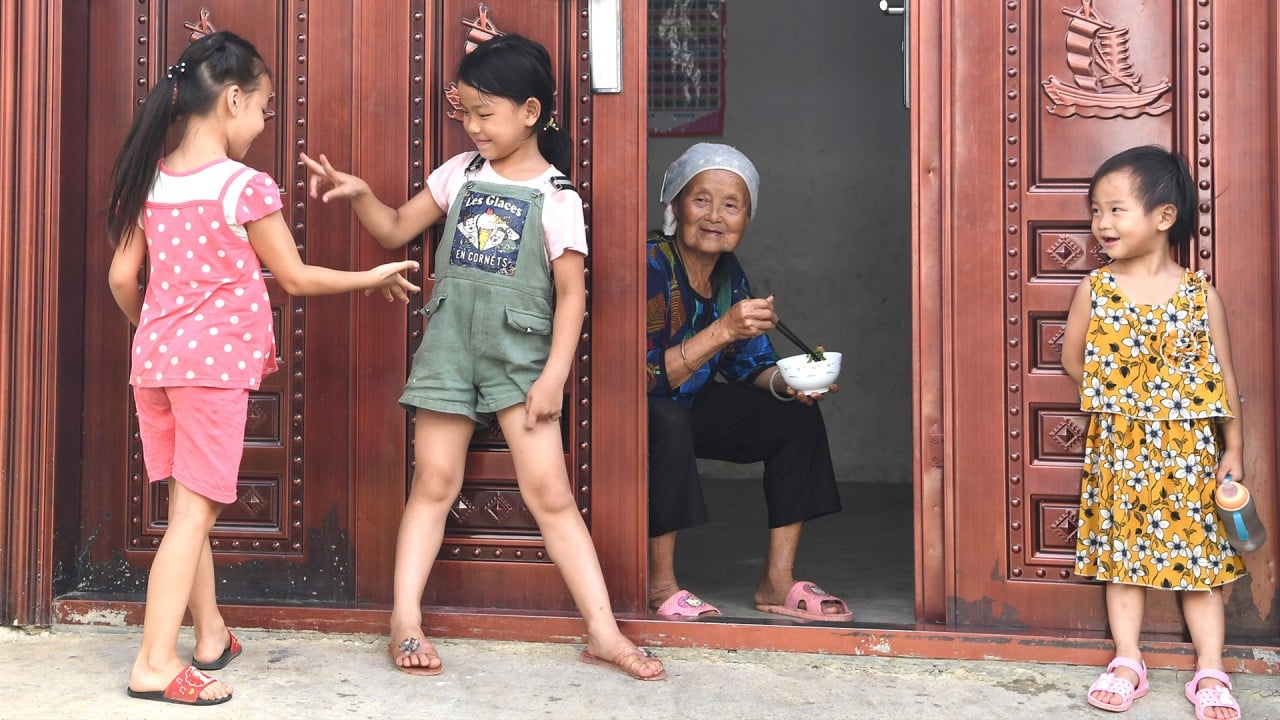
As American exceptionalism falls, Chinese exceptionalism rises
- The chaos at the Capitol could not have been better timed for a Chinese leadership preparing to celebrate the Communist Party’s centenary
- To them it shows a broken democracy, unfit to lecture others, and proves that China’s free-market authoritarianism is the true path to peace and prosperity
The most immediate fallout is the serious erosion of American exceptionalism in which prominent Americans have long trumpeted US virtues and norms such as fair elections and smooth transfers of power as examples for the rest of the world to follow – the “shining city upon a hill” referred to in John Winthrop’s 1630 sermon that was so often quoted by former president Ronald Reagan.
The ghastly sight of the riot at the Capitol has shown a divided America, characterised by a lack of trust in government and the political system and aggravated by increasingly strong partisan conflicts and stark racial inequality.

03:23
China mocks the US as Beijing compares chaos at Capitol with Hong Kong protests
The crisis will no doubt strengthen the view in the corridors of power in Beijing and of the man in the street that Chinese exceptionalism is on the rise as American exceptionalism is on the way down.
For Chinese leaders, the chaos at the Capitol and the ensuing fallout are the best evidence they have to show their people that the much-vaunted American system is broken and that the party’s authoritarian rule can deliver stability and growth without embracing democracy.
How Beijing can reduce US-China tensions ahead of the Biden presidency
Meanwhile, Trump remains defiant, raising concerns over what he might do in his final week of office amid warnings of pro-Trump armed protests in all 50 state capitals and in Washington before Biden’s inauguration on Wednesday. The presence of at least 20,000 National Guard troops for the swearing-in ceremony is quite a sight.

01:03
National Guard troops enter US Capitol as vote to impeach Trump begins
Even if Biden is sworn in without major problems, he has his work cut out for him in the turbulent times ahead – to rebuild and restore trust in government, the political system, and support for democracy.
More than anything, America will find it harder to trumpet itself as a beacon of democracy and lecture other countries about democratic values from now onwards.
Until recent years, China had framed the discourse on its peaceful rise around the selective use of the country’s vast historical and cultural legacies. Officials and analysts have long argued that Chinese exceptionalism means that China, deep-rooted in the Confucianism that espouses harmony and detests conflicts, will not follow the old war-ridden path of the West that a powerful country is bound to seek hegemony.
For proof, scholars and the public alike relish citing how the Han Chinese dynasties had no distinct tradition of foreign invasion. For example, in the early 15th century of the Ming dynasty, Zheng He commanded what was then the world’s biggest fleet to undertake seven extraordinary expeditions to reach as far as the western Pacific and Indian oceans to display the emperor’s wealth and power, unlike the brutal Western powers, whose expeditions were aimed at seeking commercial gains or colonial opportunities. The Great Wall is also often cited as an example of China’s defensive mindset to keep out invaders.

There were hopes at home and abroad that as China embraced free-market principles to enable four decades of spectacular economic growth, economic freedom could lead to political liberalisation.
Since then, the Chinese leadership has strengthened the party’s control at all levels of society and proclaimed that the party controls everything in the country.
Xi has repeatedly called for confidence in the path of socialism with Chinese characteristics, the party’s theories, the political system, and the culture, a doctrine known as “Four Confidences” just as China’s external environment worsens.
Ccoronavirus is no Chernobyl, but a wake-up call for China’s autocratic rule
But after three weeks of obfuscation the Chinese authorities took resolute and draconian measures that have succeeded in taming the virus and restoring life largely back to normal. Over the past week, the government has put much of Hebei province, which surrounds Beijing, under strict lockdown but officials remain confident of containing the new outbreak in the next two weeks.
While the virus continues to ravage much of the world, China is expected to be the only major economy in the world to register positive growth for last year and to grow around 8 per cent for this year as its factories hum at full capacity, exports soar, stock markets boom, and its currency the yuan appreciates against the US dollar. On top of that, China has announced that it has effectively eradicated absolute poverty in the country.

02:47
China looks to boost its middle class as it wraps up Xi Jinping’s anti-poverty drive
All this has boosted national pride and patriotism and the party’s authority, which are further helped by massive coverage of Washington’s dismal failure to contain the virus and unfolding political chaos.
It is against this background that Xi will outline his vision on July 1 for how the party will lead the country forward in its new development phase and double down on China’s unique model of combining the party’s authoritarian rule with free-market principles.
Wang Xiangwei is a former editor-in-chief of the South China Morning Post. He is now based in Beijing as editorial adviser to the paper

